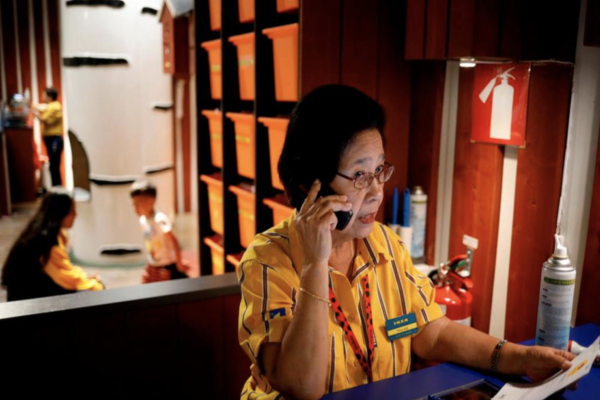
Don’t let a career change be your undoing
September 12, 2021
It’s 2021 – time to review your wealth protection strategy
September 12, 2021Planning for the finances of ageing parents is a responsibility we should not take lightly
When it comes to showing gratitude and appreciation to parents for their hard work and sacrifice in raising a family and putting the children through school and higher education, we Malaysians are generally pretty generous.
So much so that Mother’s Day and Father’s Day (or now popularly known collectively as Parents’ Days) have become commercialised events with restaurants promoting special menus and retailers offering “ideal gifts for mom and dad” come every May/June.
While there is nothing wrong with material gestures of appreciation, perhaps it would be good to look beyond what our ageing parents may like to have on a yearly basis and instead consider what they may need for the next 10 to 20 years.
The topic of personal finances will always touch on sensitivities for majority of Asian families. The common expectation is that once the children start working, they should contribute a token amount of their monthly salary to their parents to supplement their retirement.
Most of the time, it is assumed that the elderly have sufficient savings, EPF or pension for their daily expenditure and any extra given by their adult children are deemed additional “pocket money”. Rarely, if ever, do the ageing parents confide to their children should they be in financial difficulty. This is because they do not wish to burden them as they may have their own young family to support or other commitments.
Therefore, why not make the move to initiate a discussion with your ageing parents to assess their financial situation and see how you can help ensure their retirement years are spent meaningfully and confidently. Here are five things to consider for you to have a discreet but frank discussion with them.
#1. Know your own financial capabilities
Before you can commit to assist your parents beyond the usual monthly allowance, you need to know how much more you can afford to set aside.As an adult, you will have financial commitments for yourself or your own family. Apart from monthly expenditure and loan repayments, you will want to save for your children’s education or your own retirement funding.
Consider starting a regular savings plan for your parents’ expenses early so the amount is not too taxing on you but will compound over time. If you are currently on a tight budget, you could start by buying a term insurance on yourself in favour of your parents. It is relatively inexpensive and will ensure they receive a lump sum payment should anything happen to you.
If you have other siblings, a separate discussion with them will allow the siblings to pool resources together so that the financial burden is not squarely on any one individual’s shoulders.
#2. Daily expenditure and ongoing commitments
First and foremost, a few basic questions need to be posed in order to gain a better insight into your parents’ • current financial situation so that you will be in a better position to assess if they require more assistance and in what form.
• Is the source of their retirement income sufficient to fund their current lifestyle? They may be using one or a combination of savings, EPF, pension or investments. What is the shortfall, if any, and what are the options to close the gap?
• Do they still have any outstanding loans on the current residential property or vehicle hire purchase?
• Where are they invested currently? Is it suitable for their age and risk profile? If something seems amiss, there may still be time to take the necessary action.
• Have your parents signed as personal guarantors for any party? Many individuals have done this in the past as a favour for friends or relatives and forgotten about it.
• For retirees who are still involved in business, you may want to get their views on how they envisage the future of the business once they are no longer able to run it. Do they intend to hand it over to their children, sell the business or liquidate it?
• Who is helping them manage their finances? If they are handling everything personally now, will there come a time when their memory is not as sharp as before and keeping track of money matters becomes challenging?
#3. Medical funding
How are your parents currently funding their medical costs? Normal clinic visits might not cost too much, but what about situations where hospitalisation may be required? Do they have a medical card in place or have funds set aside for higher medical expenses? If private healthcare is not affordable, are they prepared to seek medical attention in government hospitals instead?
If they are on prescription medication such as for diabetes, cholesterol or high blood pressure, the cost of procuring these drugs from private pharmacies can run into hundreds of ringgit each month. Dental care costs are often overlooked and this can affect the seniors’ quality of life especially those who may require dentures or implants.
#4. Legacy planning
While this can be a sticky subject to bring up, you can reassure your parents that the intention is just to ensure they have made the necessary preparations, not to get them to reveal the details, if they prefer not to.
Check if they have drawn up their wills and know where it is located. Many individuals may have executed their wills years ago and forgotten about it, resulting in the contents being outdated, not reflecting their current wishes or the appointed executor may have even passed on.
Besides the normal distribution of assets and businesses, you may check if your parents have considered medical directives (such as Do Not Resuscitate, donation of organs, etc), whether they should consider establishing a trust to benefit the next generation (for those with higher net worth) or if they wish to make donations to charitable organisations.
For the elderly who feel they may not have the capacity to manage their finances, a Power of Attorney may be a possible solution.
#5. Final resting arrangements
While death may be a taboo subject in Asian cultures, it is a fact that we will have to deal with it one day. The older generation may balk at the thought of discussing funeral arrangements while they are still fit and healthy but planning for it now may save a lot of pain and heartache later should an unexpected tragedy occur. Without clear instructions, the surviving family members could be left scrambling in the dark.
Some basic information on their final wishes include preference for specific funeral and cremation rites, ancestral traditions to be observed and where they wish for their final resting place should be. Knowing how the cost of the funeral arrangements will be funded can potentially avoidfuture conflict among the surviving family members. This could come from insurance claims or other payment benefits upon death such as EPF.
If your parents are open to the idea of pre-planned funeral arrangements, it would ease matters greatly as their wishes can be carried out in accordance to their preferences.
In conclusion, financial planning needs for ageing parents are different and unique for every individual. As concerned adult children, we try our best to ensure that in their golden years, they do not lack for anything to make their retirement days enriching and meaningful.
It is with this intention in mind that we should be willing to brave cultural taboos and superstitions to be in a better position to assist our parents because all these issues will eventually need to be addressed one fine day.
The unprepared may face a potentially serious financial setback if the elephant in the room is continuously ignored. Make the change this Parents’ Day and have a heart- to-heart talk with the people most important in your life.
First published in Smart Investor 05/06, 2020 Issue

Felix Neoh
Director of Financial Planning at Finwealth Management Sdn Bhd




